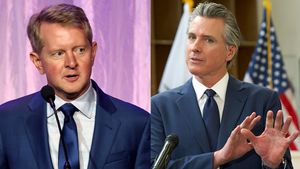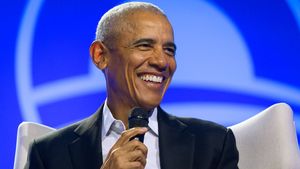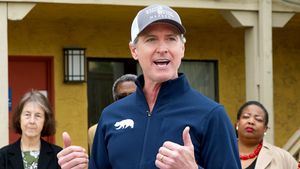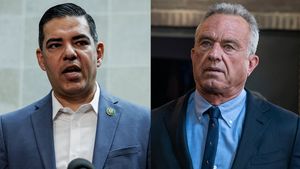Treatment GuideJust DiagnosedSex & DatingAfrican AmericanStigmaAsk the HIV DocPrEP En EspañolNewsVoicesPrint IssueVideoOut 100
CONTACTCAREER OPPORTUNITIESADVERTISE WITH USPRIVACY POLICYPRIVACY PREFERENCESTERMS OF USELEGAL NOTICE
© 2025 Pride Publishing Inc.
All Rights reserved
All Rights reserved
Scroll To Top
By continuing to use our site, you agree to our Privacy Policy and Terms of Use.
Justin's HIV Journal
My name is Justin B. Smith. I'm a 28-year-old black gay man living in Baltimore, and I am HIV-positive. I've decided to share my story because I feel it's important that people who have unprotected sex know what they might be getting themselves into.
People have asked me why I am doing this -- why have I put my personal business out like this. I tell them it is to help educate people, to make them aware and to make them think twice about having unprotected sex. This is my personal journey, and it needs to be told to help our community.
In 1999, I joined the U.S. Air Force; it was one of the best times of my life. I met my then-partner in 2003 when I was still in the military. I was stationed at Dover Air Force Base in Delaware, and he was living in Washington, D.C. Eventually I moved to D.C. too, and within two years my relationship with him would come to its conclusion. I ended up living in a studio apartment in the southwest area of the city, at the waterfront. My behavior then was erratic and out of control. I started doing things that just really weren't me.
Toward the end of 2006, I would often get sick, and I didn't know why. I had to call into work several times because I was so under the weather, and I almost lost my job. I knew something was wrong with me, and I knew I should get checked for HIV.
One morning I woke up and got sick five times. I had flu-like symptoms, but I didn't feel I had a reason to have the flu. I decided to call my best friend, Bryan, and have him meet me at Us Helping Us, People Into Living. UHU is where people can get tested for HIV in the Washington, D.C., area. They provide certain services that people with HIV need to survive. I had felt comfortable being at UHU because I used to work there and still had friends who were employed there.
I ended up getting there before my best friend and decided to get tested. I was administered the Orasure test, which can come up with the results within 20 minutes. I was so nervous. I honestly didn't think that I had the virus. I came up with excuses and said things to myself like, 'I don't feel sick now. Nothing could be wrong with me.' 'I'm 26. I couldn't be HIV-positive.' By the time the test was ready I had smoked about 10 cigarettes.
I walked back into the testing room, and the reader asked me, 'Are you ready to hear your results, Mr. Smith?' I said, 'Yes, I am'. She said, 'Mr. Smith, you've tested positive for HIV.'
I was devastated. I couldn't believe it. The first thing I thought was that I couldn't every have any children. My second thought was, 'What am I going to tell my parents?' They would be destroyed. Then the final thought was, 'I'm going to die.'
Bryan arrived at the clinic and saw it in my eyes. He held me tight as I wept in his arms. I felt comfort and security in his arms. Bryan and I then went to the bar to decide what I might want to do next.
I decided to fight, to fight to stay a live.
When I told my parents they handled it the way that any way parents can handle their son telling them he has HIV, but my father and my mother are strong. I told them not to cry for me but be strong with me.
After about 2.5 years of being HIV-positive, I was forced to go on meds becaue I had a T-cell count of 261 and a viral load of 77,000.
Now, I am in a relationship, and all my family and friends know about my status. They have given me the love and strength to help me through this journey. I created my journal to tell people that being HIV-positive is not a piece of cake. People need to know what they might have to endure if they decide to put themselves at risk.
HIV is neither glamorous or a rite of passage. Watch the journal and think twice.
In the words of Pedro Zamora: 'I'm not dying. I'm living with it.'
----------
HIV and Hooking Up
People hook up online for sex all the time, whether it is on websites like Recon, Men4Now or Adam4Adam. Whenever you go to one of these sites, there's an option on whether you want to tell people you are HIV-positive or -negative. This is not mandatory for many of the site but just optional.
When I was on those websites I would sometimes not disclose my status. Some people that I would want to hook up with wouldn't even ask about HIV; they would just assume that I was negative. When the conversation became candid I made sure that they knew I was positive. I would say, 'Hey are you OK with me being HIV-positive?' A lot of men got scared and ran away from me. Some blocked or ignored me. I felt shunned. I felt like there was nobody out there who would want me because I had this virus.
For all the men out there who shunned an openly HIV-positive man, I have something to say about all of this. The last time you had anonymous sex or an online hookup, did you even think to ask, 'Are you HIV-positive?' or 'Are you HIV-negative?' And if you did and someone told you he was negative, how do you know he told you the truth? You don't, do you? When you are hooking up with someone, do you even think about it?
When engaging in online hookups, men rarely ask those questions of other people or rarely even ask themselves, 'When was the last time I had an HIV test? What is my status?'
The gist of this is, if the person is HIV-positive, what's stopping you from putting on a condom?
I'm not trying to tell any of you what to do. I'm just trying to get you to think. A lot of HIV-positive men feel rejected, and it's OK. Rejection is a part of life. We all remember that first time when we saw a sexy man that we wanted but who didn't necessarily want us.
If you're open about your status and are HIV-positive, don't feel bad because the man that you want doesn't want you. We all can take a message from President Barack Obama and 'move on'. There are plenty of men out there who don't care about your status -- but will care about you as a human being and not as an object.
So think about this: If you have sex with someone who doesn't tell you their HIV status and you have sex with someone who is open about their positive status, what is the difference if you use a condom both times? Absolutely nothing at all.
----------
Trouble With Meds
When I was put on an anti-HIV medication regimen that incorporated Norvir, Truvada, and Reyataz, it took a while for my body to adjust to them.
The Reyataz made my eyes yellow, which means that it was affecting my liver functions. I first noticed this about a week after starting the medication. I was so self-conscience about my eyes. Everyone was going to know that I was sick, and there was nothing I could do about it. I told my doctor at the next appointment. He told me that it might occur when first starting the medications.
I believe in what my doctor tells me.
After a few weeks went by my eyes were still a little yellow. My second visit to my doctor was a good one. I voiced my concerns, and he listened. He instructed me to go to the lab and get my blood work done.
As I sat in my chair having my blood work done, I thought about the events of the future. I thought about then-candidate Barack H. Obama. I thought about the many struggles that this man had to endure. That was the moment I posed a question to myself: 'What was this man's drive to become president of a wounded country?' My second thought was, 'I'm wounded -- but not dead'.
The third visit was the reading of my blood work. It turned out to be a surprise to me. My eyes have since been better. I have been feeling so much better and the election in November gave me a lot of hope.
I had the fortune of witnessing history firsthand when I went to President Obama's inauguration on January 20 in Washington, D.C. I'm originally from D.C., by way of Silver Spring MD, so it felt like home.
The Washington area was energized by this new president, one who has given people joy and hope. He has made people think a little differently about how they treat others, how they treat themselves, and hopefully how they treat people who are living with HIV.
The people of the world have now been given a more positive outlook on life by a man who came from meager beginnings to become the leader of the free world.
Only time will tell if we as a people can keep this positive energy up. Only time can tell if the health care promises of President Barack Obama will be kept. Only time will tell if HIV-positive people will be given a more optimistic outlook on their own lives because of newfound light in America's leadership.
What is President Obama's promise on HIV? According to the White House website, in the first year of his presidency, President Obama promises to develop and begin to implement a comprehensive national HIV/AIDS strategy that includes all federal agencies. The strategy will be designed to reduce HIV infections, increase access to care, and reduce HIV-related health disparities. The president promises to support commonsense approaches including age-appropriate sex education that includes information about contraception and STD prevention. His promise includes combating infection within our prison population through education and prevention, and distributing prophylactics through our public-health system. The president also supports lifting the federal ban on needle exchanges, which could dramatically reduce rates of infection among drug users. President Obama has also been willing to confront the stigma -- too often tied to homophobia -- that continues to surround AIDS.
Hopefully, these promises will be kept and we can all look with clear eyes to the future.
----------
To read more of Smith's journal and follow in his journey with HIV, you can find him online on his own site, JustinBSmith.com; on YouTube; on Facebook ; and on MySpace.
From our Sponsors
Most Popular
Lexi Love comes out as HIV+ after Trump deletes federal resources
January 23 2025 11:23 AM
Grindr is reminding us why jockstraps are so sexy and iconic
May 02 2025 5:36 PM
BREAKING NEWS: Trump admin moves to end federal HIV prevention programs
March 18 2025 6:10 PM
Trump's orders prompt CDC to erase HIV resources
January 31 2025 5:29 PM
Celebrating Black History Month with our annual African American issue
February 01 2025 3:28 PM
Tyler TerMeer vows to continue to fight for health care for all
January 28 2025 3:00 PM
Discover the power of Wellness in your life
March 26 2025 12:41 PM
Plus: Featured Video
Latest Stories
Dancer. Healer. Survivor. DéShaun Armbrister is all of the above
July 02 2025 8:23 PM
Two right-wing Supreme Court justices signal they may uphold access to PrEP and more
April 21 2025 4:10 PM
Broadway's best raise over $1 million for LGBTQ+ and HIV causes
April 03 2025 7:15 PM
Plus nominated for 2025 GLAAD Media Award
January 22 2025 12:42 PM
'RuPaul's Drag Race' star Trinity K Bonet quietly comes out trans
December 15 2024 6:27 PM
AIDS Memorial Quilt displayed at White House for the first time
December 02 2024 1:21 PM
BREAKING: Supreme Court rules to save free access to preventive care, including PrEP
June 27 2025 10:32 AM
1985: the year the AIDS crisis finally broke through the silence
June 26 2025 11:24 AM
Trump admin guts $258 million in funding for HIV vaccine research
June 03 2025 3:47 PM
500,000 Children at Risk: PEPFAR Funding Crisis
April 08 2025 3:51 PM
The Talk Season 5 premieres this spring with HIV guidance for the newly diagnosed
March 26 2025 1:00 PM
Jess King is here to help you live your happiest, healthiest life yet
March 24 2025 4:35 PM
A camp for HIV-positive kids is for sale. Here's why its founder is celebrating
January 02 2025 12:21 PM
VIDEO: A man living with HIV discusses his journey to fatherhood
June 10 2025 4:58 PM
HRC holds 'die-in' to protest Trump health care cuts
April 28 2025 2:11 PM
Season 4 of The Switch on resilience & radical self-love returns this spring
March 26 2025 12:20 PM
Gerald Garth is keeping people of color happy and healthy through trying times
March 11 2025 3:38 PM
This long-term HIV survivor says testosterone therapy helped save his life.
December 16 2024 8:00 PM
Ricky Martin delivers showstopping performance for 2024 World AIDS Day
December 05 2024 12:08 PM













































































